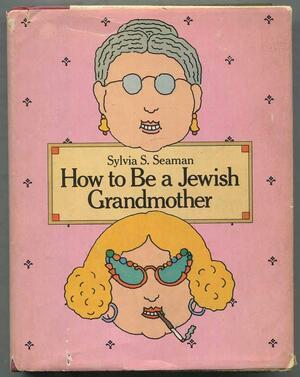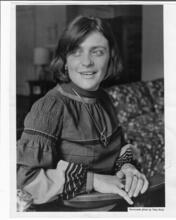Sylvia Bernstein Seaman
Sylvia Bernstein Seaman fought for women’s suffrage as a teenager, then became an important voice for second wave feminism as the first person outside the medical profession to write about breast cancer. Her first books were novels, co-written with her college roommate, Frances Schwartz, under the alias Francis Sylvin. In 1965, after surviving a mastectomy, she wrote Always a Woman: What Every Woman Should Know about Breast Cancer. The book was both popular and controversial in an era when cancer was a taboo subject. She followed this with How to Be a Jewish Grandmother in 1979, talking frankly about her own experiences with drinking and contraception. In both efforts, she was encouraged by her daughter-in-law, Barbara Seaman, co-founder of the National Women’s Health Network.
Article
“I’m still capable of marching. I marched sixty years ago. I just hope my granddaughter doesn’t have to march into the next century.” So said Sylvia Bernstein Seaman to a New York Times reporter on the occasion of the tenth anniversary of the 1970 women’s Strike for Equality and the coinciding sixtieth anniversary of woman suffrage. During her long life, she was not only a witness to but a catalyst for the dramatic changes in women’s roles and status over the course of this century.
Sylvia Bernstein was born on November 8, 1900, to Nathan Bernstein and Fanny (Bleat) Bernstein. She had one sibling, a younger brother Steven. She was active in the women’s movement from a very young age and first marched for suffrage in 1915. While a student at Cornell University, she marched in the celebratory parades of 1920 when the Nineteenth Amendment was passed and was arrested for publicly wearing riding britches. This was, however, only the beginning of her career as a feminist. After spending several years teaching high school English in New York City, and marrying chemist William Seaman in 1925, she began writing professionally.
Her first books were novels written in collaboration with her college roommate Frances Schwartz and published under the pen name Francis Sylvin. In 1965, she published Always a Woman: What Every Woman Should Know about Breast Cancer, a book based on her own experience of a mastectomy. This was the first book written about breast cancer by someone outside the medical profession. The topic, about which Seaman also wrote magazine and newspaper articles, was rarely discussed publicly in the early 1960s. In a 1980 interview, Seaman recalled, “It was considered daring at the time, but it changed attitudes, I think. … As for me, I got so much fan mail on that book, you’d have thought I was a movie star.”
How to Be a Jewish Grandmother (1979) is a humorous book of advice and anecdotes. Any topic was fair game for Seaman: vasectomies, daughters-in-law, even her own drinking habits. Besides the discussion of what it meant to be Jewish, a woman, and a grandmother, the book was an indication of the changes American culture had undergone in this century. How to Be a Jewish Grandmother is a record of the shifting social order of the 1970s, presented from the point of view of one who had herself rebelled against the norms of an earlier generation, but who may have been just a little bit bewildered by the transformations she was witnessing.
Seaman was not the only political activist in her family. Her son, Gideon Seaman, and daughter-in-law, Barbara Seaman, coauthored Women and the Crisis in Sex Hormones in 1977; Barbara was also a co-founder of the National Women’s Health Network. It was she who had encouraged Sylvia to write Always a Woman.
It was breast cancer that many years later caused Sylvia Bernstein Seaman’s death, on January 8, 1995.
Selected Works
Always a Woman: What Every Woman Should Know About Breast Cancer (1965)
How to Be a Jewish Grandmother (1979).
Dullea, Georgia. “For Family’s Three Generations of Feminists, A Memorable Day.” NYTimes, August 25, 1980.
Saxon, Wolfgang. “Sylvia B. Seaman, 94: A Writer and a Suffragist.” NYTimes, January 11, 1995.




